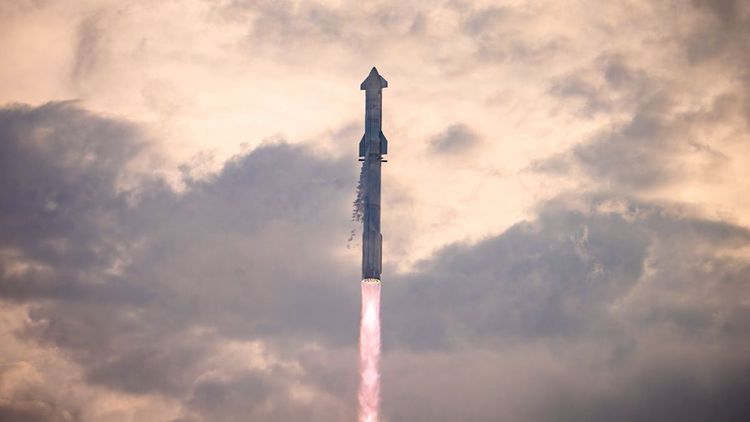Update for 9 am ET: SpaceX has successfully launched its Starship Flight 4 test flight of Starship and Super Heavy, the world's largest and most powerful rocket. Shortly after launch, the Super Heavy booster made an apparently successful "soft landing" in the Gulf of Mexico with a controlled splashdown. The Starship vehicle is in a 28-minute coast phase ahead of its own reentry and splashdown in the Indian Ocean.
SpaceX plans to launch its giant Starship rocket this morning (June 6), and you can watch the action live.
Starship, the biggest and most powerful rocket ever built, is scheduled to launch from SpaceX's Starbase site in South Texas today, during a 100-minute window that opens at 8:50 a.m. EDT (1250 GMT; 7:50 a.m. local Texas time).
You can watch the event live here at Space.com, or via SpaceX's account on X, beginning about 30 minutes before liftoff.
Related: Relive SpaceX Starship's 3rd flight test in breathtaking photos
Update for June 6, 7 am ET: SpaceX has a new launch time for today's Starship Flight 4. The launch is now targeted for 8:50 a.m. EDT (1250 GMT).
Today's launch will kick off the fourth test flight for the 400-foot-tall (122-meter-tall) Starship, which consists of a first-stage booster called Super Heavy and an upper-stage spacecraft known as Starship, or simply "Ship."
The first three Starship missions launched from Starbase in April 2023, November 2023 and March of this year; the debut flight ended just four minutes after liftoff because Starship's two stages failed to separate as planned, and SpaceX ordered a controlled detonation.
Starship achieved stage separation on Flight 2, which lasted about eight minutes. Flight 3 saw an even bigger jump in performance; it ended about 50 minutes after launch with the breakup of Ship as it reentered Earth's atmosphere.
Ship was trying to come in for an Indian Ocean splashdown on Flight 3. That's the goal on Flight 4 as well. Super Heavy's target destination, meanwhile, will be the Gulf of Mexico, not far from Starbase.
SpaceX views the fully reusable Starship as a revolutionary advance in spaceflight and exploration. If all goes according to plan, the vehicle will allow humanity to spread its footprint to the moon, Mars and beyond.
NASA is a Starship believer. The agency chose the giant rocket to be the first crewed lander for its Artemis program, which aims to establish a moon base by the end of the 2020s. The first Artemis Starship mission will be September 2026's Artemis 3, which, per the program's current architecture, is expected to land NASA astronauts near the lunar south pole.










































